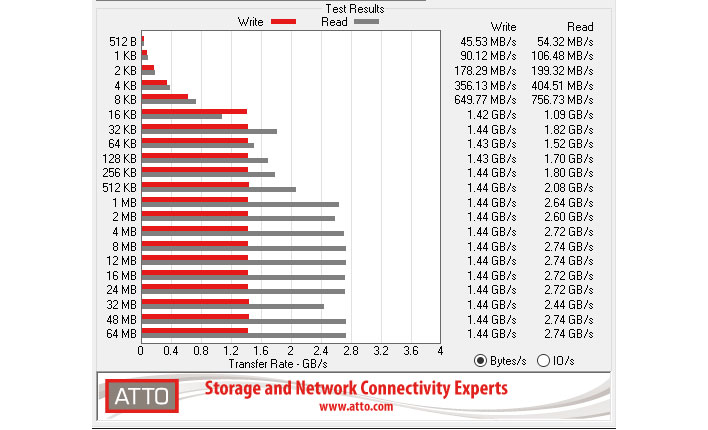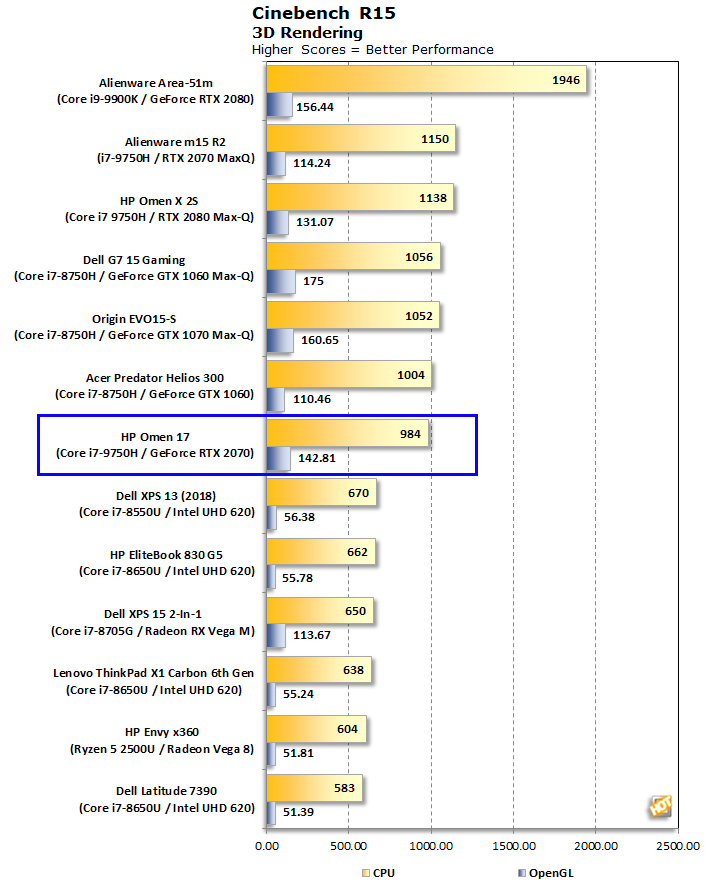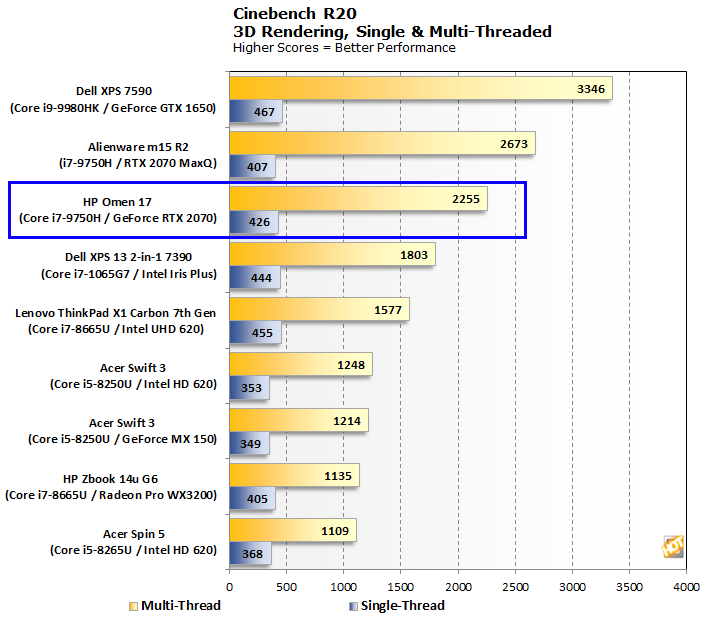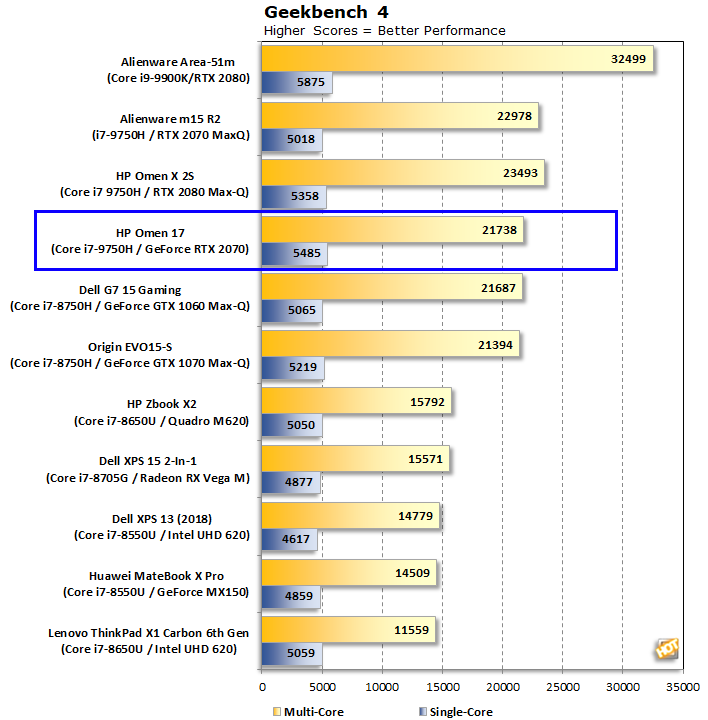We tested the HP Omen 17 as it shipped to ensure we get the same out-of-box experience as your average gamer (save for uninstalling McAfee), with the latest driver updates installed. Many variables can affect performance, so our comparisons should serve as a reference point. Our benchmarking kicks off with storage, CPU, and game tests to get an idea how the Omen 17 performs in everyday tasks and gaming.
 |
ATTO Disk Benchmark
|
Peak Sequential Storage Throughput
|
|
ATTO's disk benchmark gives us an idea of how well the system's SSD performs with sequential read and write operations of differing sizes. This system has a 256GB Samsung PM981 NVMe solid state drive with PCI Express 3.0 support. It's rated to deliver up to 2,800MB/s of sequential read performance and up to 1,100MB/s of sequential write performance.
In our benchmark run, the SSD's sequential read performance peaked at 2.74GB/s, which is in striking distance of its advertised maximum speed. On the write side of the equation, it peaked at 1.44GB/s, coming in a bit faster than its rated top speed.
 |
Cinebench R15 And R20
|
3D Rendering On The CPU And GPU
|
|
Cinebench tests the CPU and GPU independently and provides a glimpse into the system's throughput. The test is based on Maxon’s Cinema 4D modeling software that’s used in movie production studios.
The Omen 17 posted a single-core score of 142.18 and a multi-core score of 984 in Cinebench R15, the latter of which is slightly below the Omen X 2S and Alienware m15 R2, all of which are running the same Core i7-9750H processor. That's likely due to the Omen 17 throttling more aggressively than the other two with heavy CPU workloads.
We see a similar disparity in multi-core performance in Cinebench R20, when comparing against the Alienware m15 R2, though the single-core score notches a victory.
 |
Geekbench 4
|
Single and multi-core
|
|
Geekbench 4 is a cross-platform benchmark that simulates real world processing workloads in image processing and particle physics scenarios. We tested the Omen 17 in Geekbench 4’s single and multi-core test workloads.
The Geekbench 4 results play out the same way. Single-core performance is strong, but when tapping multiple cores and threads on more taxing workloads, the quick throttle on this laptop dings performance a tad, compared to other laptops with the same processor.











